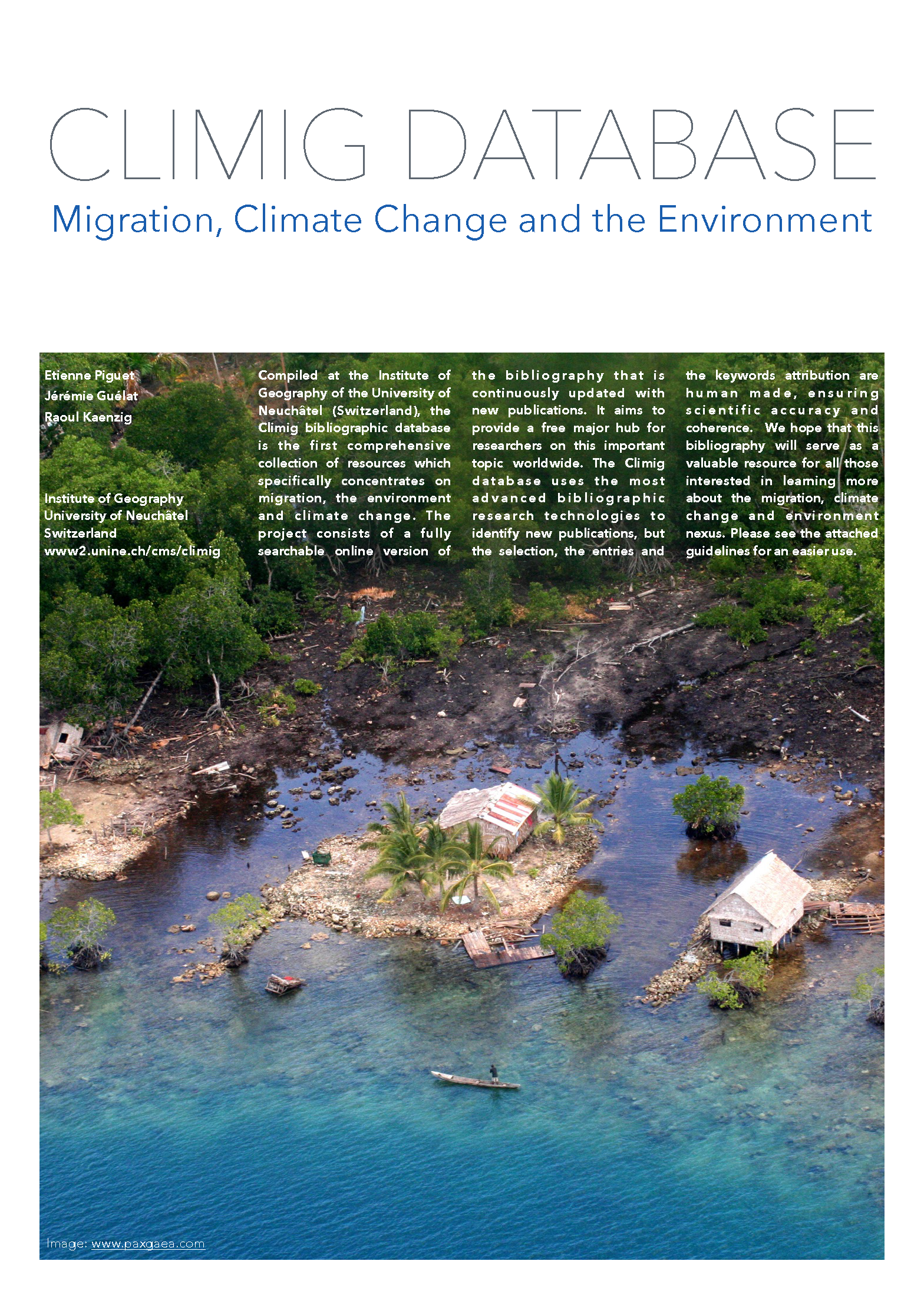
Welcome to Climig,
Climig is a bibliographic database updated weekly which lists the publications that deal with environment-related migration. You can see an example of the content here https://climig.com in Wordpress format. If you want to use the database to perform advanced research by keywords, type of hazards, etc… we are happy to share a database in ENDNOTE format.
To obtain Climig, write to climig@unine.ch.
You will receive it free of charge as soon as possible.
Do not hesitate to contact us for any questions related to its use.
Searches on Climig
In the endnote search bars, please select keywords.
Then you can do your research according to the list of keywords that we have established
Four families of keywords are used :
- Area identifies the geographic areas of the studies based on UN definitions.
- Type identifies the kind of case study and its methodology.
- Environmental hazard identifies the types of environmental perturbation studied.
- Focus relates to the specific approach of the paper, which may be focused on gender issues, on legal issues, etc.
Area
Continents, countries, regions or even cities are designated in the keywords field. Moreover, Foresight’s (2011) vulnerable ecoregions are also identified (drylands, mountain and low-elevation coastal zones). User is then able to look for papers related to a whole continent, to a specific country or to particular regions or cities.
Type
- Overview is used for synthesis on the topic.
- Law is related to papers dealing with legal issues and/or policies.
For empirical studies, Climig contains the keyword type :
- Type1: Ecological models based on area characteristics (spatial analysis)
- Type2: Multilevel analysis based on area and individual characteristics
- Type3: Analysis of individual data based on large sample surveys (>100)
- Type4: Historical analogues
- Type5: Indexes of vulnerability, hotspots identification, scenarios, regional case studies, etc
- Type6: Qualitative field case studies using ethnographic methods and small sample questionnaires
Environmental hazard
- Flood: flooding, flash flood, rainfall variability, ...
- Hurricane: typhoon, cyclone, storm, ...
- SLR: sea level rise, slr, coastal erosion, ...
- Drought: desertification, heat waves, dry, rainfall variability, land degradation, ...
Focus
- DRR / EWS: disaster risk reduction / early-warning system in environmental migration
- Gender: studies dealing environmental migration with a special focus on gender issues
- Migadapt: migration as an adaptation response, as a strategy to cope with environmental degradations
- Perception: representations and perceptions of actors on climate change
- Statelessness: climate change induced statelessness
- Trapped: studies dealing with immobility and trapped populations
- Conflict: studies linking environmental migrations and conflicts


